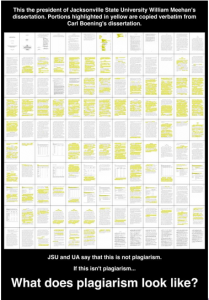Critical Education is an international peer-reviewed journal, which seeks manuscripts that critically examine contemporary education contexts and practices. Critical Education is interested in theoretical and empirical research as well as articles that advance educational practices that challenge the existing state of affairs in society, schools, and informal education.
Critical Education is an open access journal, launching in early 2010. The journal home is criticaleducation.org
Critical Education is hosted by the Department of Curriculum and Pedagogy at the University of British Columbia and edited by Sandra Mathison (UBC), E. Wayne Ross (UBC) and Adam Renner (Bellarmine University) along with collective of 30 scholars in education that includes:
Faith Ann Agostinone, Aurora University
Wayne Au, California State University, Fullerton
Marc Bousquet, Santa Clara University
Joe Cronin, Antioch University
Antonia Darder, University of Illinois, Urbana-Champaign
George Dei, OISE/University of Toronto
Stephen C. Fleury, Le Moyne College
Kent den Heyer, University of Alberta
Nirmala Erevelles, University of Alabama
Michelle Fine, City University of New York
Gustavo Fischman, Arizona State University
Melissa Freeman, University of Georgia
David Gabbard, East Carolina University
Rich Gibson, San Diego State University
Dave Hill, University of Northampton
Nathalia E. Jaramillo, Purdue University
Saville Kushner, University of West England
Zeus Leonardo, University of California, Berkeley
Pauline Lipman, University of Illinois, Chicago
Lisa Loutzenheiser, University of British Columbia
Marvin Lynn, University of Illinois, Chicago
Sheila Macrine, Montclair State University
Perry M. Marker, Sonoma State University
Rebecca Martusewicz, Eastern Michigan University
Peter McLaren, University of California, Los Angeles
Stephen Petrina, University of British Columbia
Stuart R. Poyntz, Simon Fraser University
Patrick Shannon, Penn State University
Kevin D. Vinson, University of the West Indies
John F. Welsh, Louisville, KY
Online submission and author guidelines can be found here.

 Follow
Follow